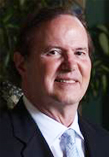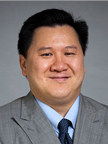© 2015 The Texas Lawbook.
By Mark Curriden
(Jan. 28) – Oil and gas heir Albert Hill Jr. must pay Dallas trial lawyer Gregory Shamoun $7.25 million for about one month of legal work in 2010 in helping settle a lengthy and heated hundred-million-dollar inheritance dispute with his son, the Dallas Court of Appeals ruled Tuesday.
The three-judge panel rejected arguments by Hill Jr.’s lawyers that there was no evidence that Shamoun did anything that contributed to the resolution of the billion-dollar lawsuit. The court also said the trial court was wrong to rule that there was no evidence that Shamoun being paid what amounts to $48,000 an hour was illegally excessive.

Shamoun was one of more than 100 lawyers hired by the Hills during the past decade to fight more than 20 lawsuits filed against each other and related individuals and businesses in what the court described as a “spider web of litigation.” Shamoun worked for Hill Jr. in 2010 as the dispute was headed to trial. The case settled, which resulted in Hill Jr. and Shamoun arguing over Shamoun’s role in the settlement talks and how much he should be paid.
This week, a three-judge panel ruled unanimously that a Dallas trial judge wrongly ruled in 2013 that Shamoun and his law firm, Shamoun & Norman (S&N), did not deserve to be paid the $7.25 million that a jury awarded the lawyer.
Hill Jr., who operates the Dallas investment firm AG Hill Partners, objected, claiming $7.25 million meant that Shamoun was being paid $48,000 an hour for his work. Hill’s lawyers asked the judge to set aside the verdict because it was not supported by the law or the evidence.
The trial court agreed, threw out the award, but issued no “findings of fact or conclusions of law to support its decision to disregard the jury’s findings.”
“Reviewing the record in the light most favorable to the jury’s finding,” Justice David Bridges wrote, “we conclude S&N presented more than a scintilla of evidence to support the jury’s finding that the ‘monetary worth’ of his services ‘within the bounds of reason’ was $7,250,000 and such a finding was ‘not extreme,’ particularly given that the jury awarded approximately half of the amount S&N’s expert said was reasonable.”
James Ho, a partner with Gibson Dunn & Crutcher and a lawyer representing Hill Jr., told The Texas Lawbook they will definitely appeal to the Supreme Court of Texas.

“The district court was right to reject this lawsuit in its entirety,” Ho told The Texas Lawbook. “Our Legislature adopted special protections to stop precisely this kind of abuse and fraud in contingency fee agreements—protections that this case threatens to gut. The Texas Supreme Court has already sided with the district court and Mr. Hill at an earlier stage in this litigation, and we look forward to presenting our case to the Texas Supreme Court once again.”
Unlike the trial court, which provided no explanation for its decision, Justice Bridges and his colleagues, Justices Frances and Myers, went into deep detail of the facts and its legal reasoning.
In March 2010, Hill Jr. hired Shamoun to represent him in a federal civil racketeering case brought by Hill III that was headed to trial. Hill III alleged that Hill Jr. and others illegally distributed millions of dollars from two family trusts. Hill III sought more than $1 billion in damages.
Shamoun claims that Hill Jr. and those working for Hill Jr. hired Shamoun in late March 2010 to enter into settlement negotiations with lawyers for Hill III.
The lawsuit between the Hills settled in early May. Hill Jr. claims that Shamoun was never authorized to be involved in settlement discussions and did no work on settlement negotiations.
Shamoun submitted an $11 million legal bill, which Hill Jr. refused to pay. Shamoun then sued Hill Jr., seeking payment by making a quantum meruit claim, which is Latin meaning compensation deserved for actual work performed.
In 2013, the legal fee battle between Shamoun and Hill Jr. went to trial. Shamoun testified that he worked between 150 hours and 400 hours on the settlement discussions.
After two weeks of testimony and arguments, a Dallas jury awarded Shamoun $7.25 million.
Hill Jr.’s lawyers argued post trial that the jury award amounted to Shamoun being paid about $48,000 an hour, which they said was illegally excessive.
The judge agreed and threw out the jury award, which led Shamoun to appeal.
“After reviewing the record in the light most favorable to the jury’s finding, we conclude S&N presented more than a mere scintilla of evidence to support the jury’s finding that it provided Hill valuable compensable global settlement services,” Justice Bridges wrote. “Accordingly, the trial court could not have granted Hill’s motion to disregard [the jury’s findings due to] insufficient evidence.”
Justice Bridges specifically pointed to the testimony of prominent Dallas trial lawyer Dick Sayles, who was an expert witness for Shamoun.
“Sayles testified that in his expert opinion, the reasonable value of S&N’s global settlement services between March 27, 2010 and May 5, 2010 equaled $15,912,500,” Justice Bridges wrote. “He agreed that, while time and labor was significant, he believed the fee ‘based on a time factor alone would not be justified.’
“However, in reaching his opinion, Sayles also considered the Andersen factors,” the court said in its 39-page opinion. “Specifically, he described the novelty and difficulty of the questions involved as ‘the most complex array of litigation’ he had ever seen, particularly considering not only the legal complexity but also the complexity of the family relationships.”
The appeals court ruled that Sayles’s opinion “was not contrary to the well-established law of quantum meruit.” The court ruled that Hill Jr.’s “disagreement is a factual dispute, not a challenge to the reliability of Sayles’s opinion based on a misunderstanding of the law. Such factual disputes are best left to the jury, which determines the weight to be given an expert and weighs conflicting opinions presented.”
“Sayles testified a billion dollars was at stake and written demands were as high as $100 million,” Justice Bridges wrote. “He considered the global settlement a ‘remarkable achievement’ that was beneficial to all sides. Sayles acknowledged the fee request was high, but he also explained that cases such as these are rare so he had little by which to compare. That being said, he believed the fee was reasonable.”
The Dallas Court of Appeals concluded by saying, “we reject Hill’s argument that a $48,000 hourly rate cannot be justified as ‘reasonable’ and his attempt to mischaracterize the nature of the damages sought by S&N.
“Neither Hill nor S&N presented evidence to the jury that an hourly rate times the number of hours worked was the proper method of calculating the reasonable value of services,” Justice Bridges wrote. “While we acknowledge the jury heard evidence of Shamoun’s hourly rate and number of hours worked under the limited fee agreements, those calculations are irrelevant when considering the reasonable value of services performed outside of those agreements.
“As S&N explains, the amount of attorney’s fees awarded by the jury was less than one percent of the value of a trust that Hill gained control of as a result of S&N’s efforts,” the court added.
© 2015 The Texas Lawbook. Content of The Texas Lawbook is controlled and protected by specific licensing agreements with our subscribers and under federal copyright laws. Any distribution of this content without the consent of The Texas Lawbook is prohibited.
If you see any inaccuracy in any article in The Texas Lawbook, please contact us. Our goal is content that is 100% true and accurate. Thank you.
